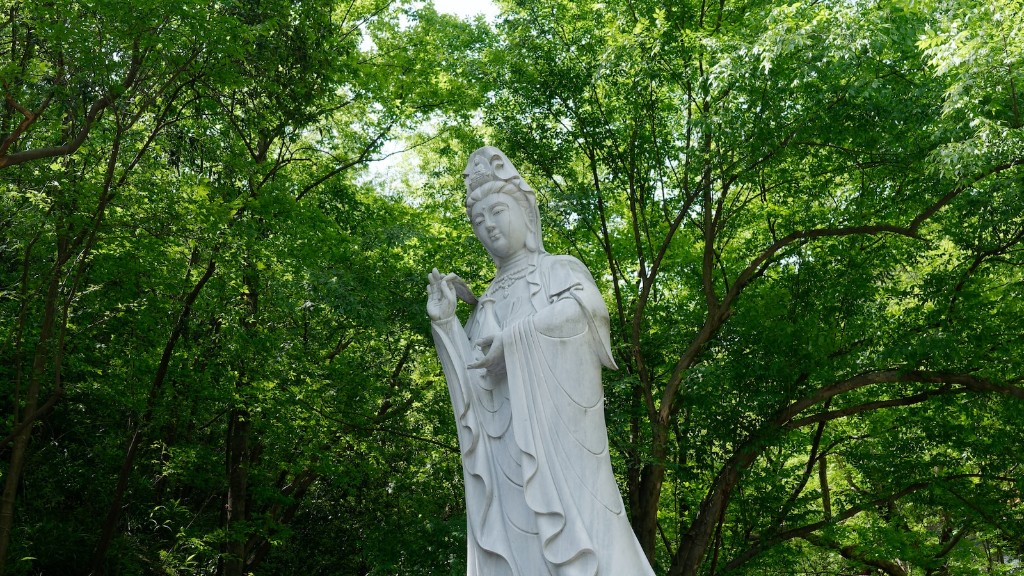Definition and Origin of Hinduism
Hinduism is the oldest religion in the world and is considered a way of life for millions of people across India and the world. It is an ancient religion that has its roots in the Indian subcontinent more than 4,000 years ago. It is the world’s third-largest religion with more than 900 million followers, according to some estimates. Hinduism is composed of many different beliefs, rituals, and practices, but it centers on respect and reverence for the divine power. Hindus believe that the universe is sustained by the power of the divine and humans have a responsibility to reach out to that divinity and manifest its power in all aspects of their lives.
The Four Goals of Life
The Law of Hinduism is based on the Four Goals of Life – Dharma (righteousness or duty), Artha (wealth), Kama (fulfillment of desires), and Moksha (liberation or freedom from sa@sāra or cycle of rebirths). Dharma is considered the most important, as it is the foundation upon which the other goals of life depend. Hinduism teaches that a person must live in harmony with the spiritual laws of the universe to achieve balance and peace in life. According to Hinduism, a person should strive for Dharma, then wealth and fulfillment of desires, then freedom from sa@sāra through self-realization.
The Ten Yama & Niyama
The Law of Hinduism also includes Ten Yama (restraints) and Niyama (observances), which are believed to be the moral and ethical codes that all Hindus should adhere to. The Yama and Niyama form the basis of the karma-focused Hindu lifestyle. The Ten Yama are non-violence, truthfulness, non-stealing, chastity, non-greed, patience, control of emotions, non-attachment, purity and contentment. The Ten Niyama are austerity, self-study, worship, austerity, contentment, faith, forgiveness, service and charity, japa (repetition of mantras), and meditation. Following these codes of conduct is integral to a Hindu’s journey to finding peace and spiritual fulfilment.
Law of Reincarnation & Karma
Hinduism is based on the law of reincarnation, according to which the soul is born again and again into various physical forms until it is able to attain salvation. This process is determined by one’s karma, which is the accumulated deeds, thoughts and intentions from previous lives as well as from this life. The Law of Hinduism recognizes karma as the basis of the cycle of cause and effect, and believes that one’s actions and intentions will have consequences in the future.
The Four Paths of Yoga
The Law of Hinduism also includes the four paths of yoga, which are the paths to enlightenment and self-realization. The four paths are Bhakti Yoga (the path of devotion and love), Jnana Yoga (the path of knowledge and wisdom), Karma Yoga (the path of discipline and action), and Raja Yoga (the path of breath control and meditation). Each of these paths is an expression of the divine energy and will help a person to eventually reach a state of liberation from sa@sāra.
The Caste System
The Law of Hinduism also includes the caste system, which is an ancient hierarchical class system that determines a person’s place in the traditional Hindu social structure. The four main castes, or varnas, are Brahmins (priests), Kshatriyas (warriors), Vaishyas (merchants), and Shudras (laborers). This system continues to exist in many parts of India today, with some modifications.
The Six Schools of Philosophy
The six schools of Hindu philosophy are based on the Vedas, the ancient Hindu texts. These schools are Samkhya (analytic philosophy), Yoga (mysticism), Nyaya (logic), Vaishasika (metaphysics), Mimamsa (hermeneutics), and Vedanta (monism). Each of these schools focuses on different aspects of the Vedas and the Law of Hinduism, and has its own unique interpretation of Hinduism and how it should be practiced.
The Law of Dharma
Dharma, or righteousness, is the underlying Law of Hinduism and is considered to be the cornerstone of its teachings. Dharma is the Law of Natural Balance and is based on the doctrine of right action, right speech and right thought. According to Hinduism, following Dharma is the only way one can reach peace, contentment and fulfillment in life.
What is the Role of Karma?
Karma is an essential component of the Law of Hinduism and is believed to determine a person’s destiny. According to Hinduism, a person’s past actions and deeds are carried forward into their next life and will affect the individual’s future. Therefore, it is important for Hindus to focus on their thoughts and actions in order to create positive karma so that they can reach their higher spiritual goals.
The Significance of Dharma
Dharma is an integral part of the Law of Hinduism and is considered to be the basis of human life. According to Hinduism, following Dharma is the path to reaching the highest spiritual goals and achieving moksha (liberation). Dharma includes all aspects of life, from moral and ethical standards to religious duties to social obligations and responsibilities. Therefore, it is important for Hindus to live in accordance with Dharma in order to lead a fulfilling and meaningful life.
The Role of Brahman
Brahman is the Ultimate Being in Hinduism and is believed to comprise all of existence. Brahman is considered to be the source of all spiritual knowledge in Hinduism and serves as the foundation of the Law of Hinduism. It is believed that Hindus must form a close connection with Brahman in order to reach moksha and attain the highest spiritual goals in life.
The Power of Mantras
Mantras are sacred sounds or chants that are used in Hinduism to create a connection with the divine. Mantras help to focus the mind and open up communication with the spiritual world. The continual repetition of mantras helps to focus the mind and can help a person to manifest their spiritual goals. According to Hinduism, mantras have the power to heal, empower, uplift, and open the heart to new spiritual possibilities.
Impacts of Hinduism on Society
Hinduism has had a profound impact on Indian society. In particular, Hinduism’s emphasis on living in harmony with nature has had a positive effect on environmental sustainability in India. Additionally, the Law of Hinduism has provided a religious and ethical foundation for Indian culture and societal values. Finally, Hinduism has also impacted India’s economy as its spiritual teachings have provided a foundation for spiritual tourism, which has become an important part of the Indian economy.


